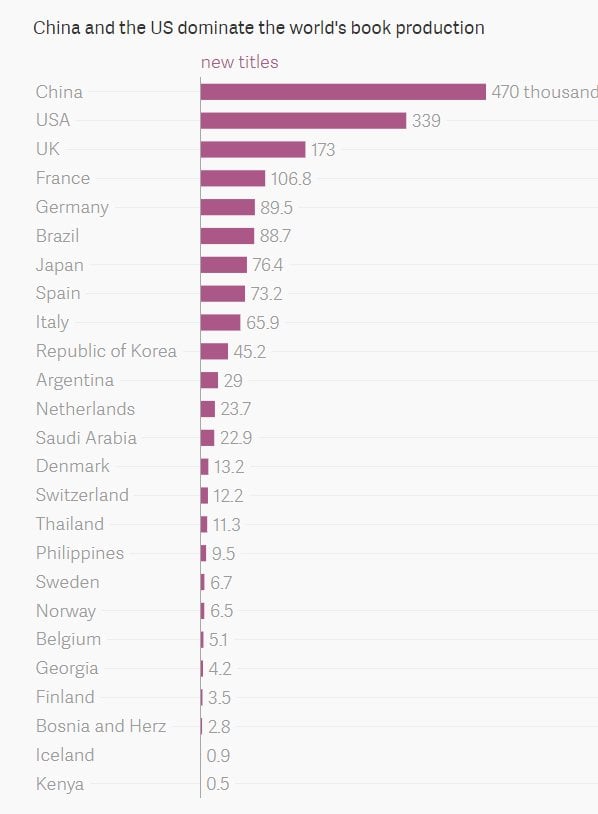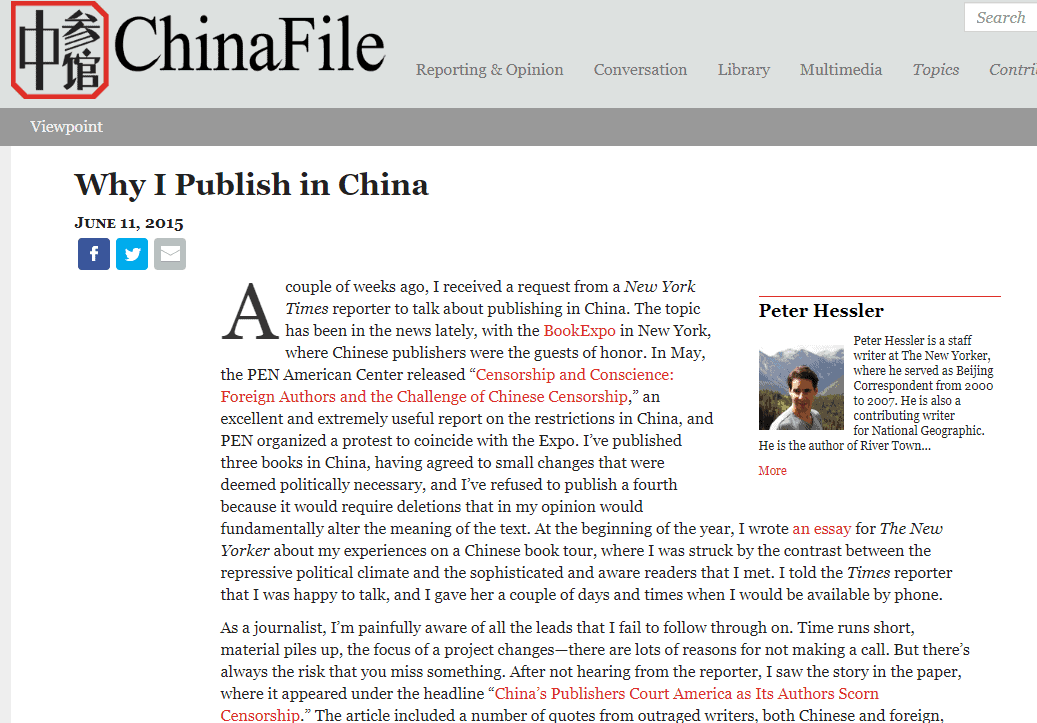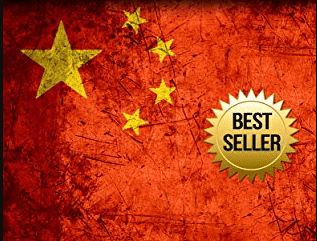The book publishing market in China: attractive but complex!
China is considered a big publishing industry, and attract world wide authors and agents.
This, at the same time, makes it an important and lucrative market for foreign publishers who would like to sell their copyrights there.
However, they face unique challenges, not to mention the fact that there is a very different ebook market from that in the West.
Let’s go into a little more detail about the publishing market in China.
- A complex but rewarding market for foreigners
- China’s interest in publishing
- The sale of ebooks in China
- A “censored” Chinese market that requires changes

I. A complex but rewarding market for foreigners
Economically, China is an attractive country for almost everything, and we will speak today of books publishing.
However, the country’s policies complicate the lives of foreign companies, which are not used to the country’s “rules”.
According to Diane Spivey, Rights & Contracts Director at Little, Brown Book Group, who spoke at the Frankfurt Book Fair, “Times are tough” for publishing.
To make their future brighter, publishers should pay more attention to the evolution of foreign rights (selling books to publishers in other countries for translation).
For this aspect, according to her, “also offers new opportunities for publishers who are willing to look for them”.
This is why it is interesting to look at the Middle Kingdom.
China, which can be particularly difficult, can above all be particularly advantageous as the largest publishing industry in the world.
A market that is considered “profitable”, both in terms of time and effort, if publishers are “willing to invest in it,” says Lynette Owen, Director of Copyright at Pearson Education in the UK.
See Peter author that publish in China

II. China’s interest in publishing
Wuping Zhao, Vice President of Shanghai Translation Publishing House, presented at the Book Fair the lucrative opportunities for foreign publishers who want to sell the translated titles in China.
There are 580 “state” publishers in China with 70% of the staff based in Beijing and Shanghai.
But the really important point is the dramatic increase in rights acquired from abroad.
An increase made possible by the opening up of the market, which is increasing slightly, while the Chinese General Administration of Press and Publishing no longer controls the publication of directly translated titles.
However, it should not be forgotten that mainland China has “its own rules”, as Gris Tan, owner of the Grayhawk Agency in Taipei, points out.
The books that sell well in the West are not necessarily those that sell well in China.
That’s why Tan recommends that publishers sell the rights to Taiwan in the first instance, which is much closer to international trends.
Being an “important reference point for mainland Chinese publishers,” the book, once published in Taiwan, is more likely to be read by a mainland Chinese publisher, who may be more inclined to buy the rights.
III. Selling ebooks in China
What is important for foreign publishers to know is the complexity of publishing ebooks in China.
It is important to know that Chinese publishers usually sell ebooks for 35% less than the printing price and that Amazon’s Kindle still does not work in China.
The only sites that sell ebooks are Dangdang and 360buy.
Tan also made a point, in a brief overview of the Chinese ebook market, pointing out that ebooks are mainly read on mobiles, which may seem confusing to some foreign publishers.
China has more than one billion mobile phone users and 300 million smartphone users.
And it is China Mobile, one of China’s two leading telecom providers, that offers the country’s largest ebook platform.
Understandably, some publishers may be reluctant to sell rights to China Mobile :
Substantial sales reductions of at least 50% and sometimes as much as 70%.
Ebook sales with a 90% reduction in the printing price.
“These terms can sound really bad,” agrees Tan.
But China Mobile has a huge network of users, so if a book becomes a bestseller on the platform, “we could be talking about six-figure US revenues.
And, according to him, “if your ebook clause tells you that you can’t sell an ebook with a price of less than 50% of the printed edition, you can change that clause to work with China Mobile.
IV. A “censored” Chinese market that requires modification
Not all Chinese publishers are yet open to the idea of acquiring foreign rights, and some are even rather “reluctant”, according to Zhao, often preferring to translate titles in the public domain.
However, Chinese publishers are not hesitating to rush to acquire successful books, as was the case with EL James’ 50 Shades of Grey.
But that was without taking into account his own country’s regulations…
When the Chinese publisher, who had bought the rights, realized how much of its content had to be removed, in accordance with Chinese censors, the book could not yet be published in China.
And it is not known when this will happen.
Removing content deemed controversial is quite common in Chinese publishing.
This can be a problem for publishers of original foreign works.
And in some cases, it is not even possible to predict what may or may not be accepted.
The Pearson group experienced these mishaps when it sold a travel guide to a Chinese publisher, which included a map showing the border with India, which China is contesting.
In this case, Pearson simply had to withdraw the map, but in other cases, the changes are not as easy.
“We’ve had political situations and sometimes, in those cases, we haven’t published the book at all,” Pearson said.
Pricing policy, as we’ve seen, can also be a problem.
A Chinese publisher has the right to sell a book for half the price of the original.
“Changes sometimes happen,” said Xie Na, head of the International Press Department in China at Beijing University.
“Sometimes a Chinese publisher simply wants to divide a book into two volumes in order to sell more.
Conclusion
The book industry in China is a lucrative but somewhat complex market.
Entering the Middle Kingdom can be a daunting task.
The need to adapt is paramount.






